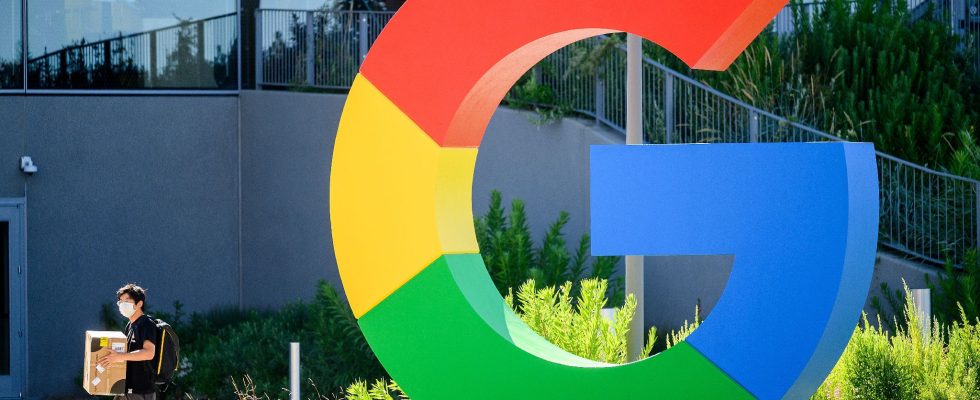The omnipotent multinational will have to make itself small in the face of the United States Department of Justice. This Tuesday, September 12 marks the opening of the trial in Washington of Google and its parent company, Alphabet, as part of the most significant legal proceedings ever launched against the web giant.
American justice is attacking the historic activity of this pioneering Internet company: the Google search engine is accused of having abused its dominant position to keep its number one position. According to AFP, Google still represents 90% of this market worldwide, computer and smartphones combined.
During the ten weeks of hearings – around a hundred witnesses will follow one another – Google will try to persuade a federal judge that the accusations of the American Department of Justice are unfounded. A look back at what could undermine the web titan.
Generous contracts with Samsung, Apple or Mozilla
While the legal director of parent company Alphabet, Kent Walker, recently declared that Google’s success “is deserved”, the US government believes that the giant built its dominance in online search through illegal contracts with several companies technologies.
As told by the American media CNN, the United States Department of Justice notably mentioned in its complaint “that Google paid billions of dollars per year to device manufacturers” to have its search engine activated by default. The authorities cite several smartphone manufacturers, including Apple and its iPhones, as well as Motorola, Samsung and LG. This would also have been the case for the search bars of Mozilla and Opera browsers, with Google going so far as to prohibit certain companies from dealing with its competitors “in many cases”, details CNN.
American justice also criticizes the rules imposed by Google for the Android operating system, technically open source but created and largely developed by the company for fifteen years. She thus believes that “Google’s Android operating system agreements with device manufacturers are anti-competitive, because they force smartphone manufacturers to pre-install other applications belonging to Google, such as Gmail, Chrome or Maps “, summarizes the American media.
Beyond the initial accusations, judges should also listen to the testimony of “high-level witnesses”, says CNNincluding “former employees of Google and Samsung, as well as Apple executives.”
Ahead of all its competitors, except in AI
For Alphabet’s legal director, these accusations make no sense: “People don’t use Google because they have no choice but because they want to. It’s easy to change engines default search, we are no longer in the era of modems and CD-ROMs”, replied Kent Walker a few days before the trial.
In its complaint, the US Department of Justice does not deny this popularity. He acknowledges that the company was the first in 1998 to offer “an innovative way to search the nascent Internet”, at a time when finding the right site was a matter of browsing indexes of links listed by hand.
But for the American government, “this Google has long since disappeared.” Microsoft’s Bing, Yahoo!, Baidu and DuckDuckGo… Even though they have been present for years, Google’s rivals have never managed to gain much ground. Its main competitor, Bing, held almost 3% of the global computer search engine market in August, according to statcounter – i.e. the bottom of the range often cited by various sources, the high being 8%.
A central point of the trial, however, is expected to focus on a new area in which Google and its competitors fiercely oppose each other: the addition of generative artificial intelligence (AI) in search engine results. Google and Microsoft compete with chatbots and other digital assistants, but Microsoft stays ahead thanks to its major investments in OpenAI, the start-up behind ChatGPT. The company’s lawyers could thus highlight Bing’s recent transformation to contradict accusations of monopoly.
A historic trial even if Google wins
This procedure remains in any case the most important antitrust trial brought against a large technology company in twenty years, when the same authority attacked Microsoft and the domination of Windows on the operating system market. In 1998, the United States threatened to break the empire into several companies, before a deal was reached in 2001 between the courts and the company.
Google therefore finds itself under the same sword of Damocles: if in a few months Judge Amit Mehta rules in favor of the authorities, the group risks being forced to separate from certain activities to force it to change its methods.
Hope is slim, but it exists, because the giant no longer seems so untouchable: in Europe, Google has already been fined more than 8.2 billion euros for various violations of competition law. A conviction nevertheless remains very hypothetical, and whatever the outcome of this first trial, nothing will be over “until there is an appeal”, recalls John Lopatka, professor of law at Penn State’s School of Law.
But the impact of the affair could still have “a strong impact on the way in which technological platforms will operate in the future”, he predicts. Clearly, the threat it represents could well force other multinationals to self-regulate.
